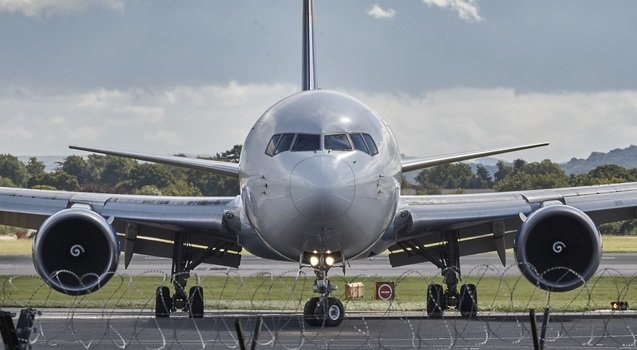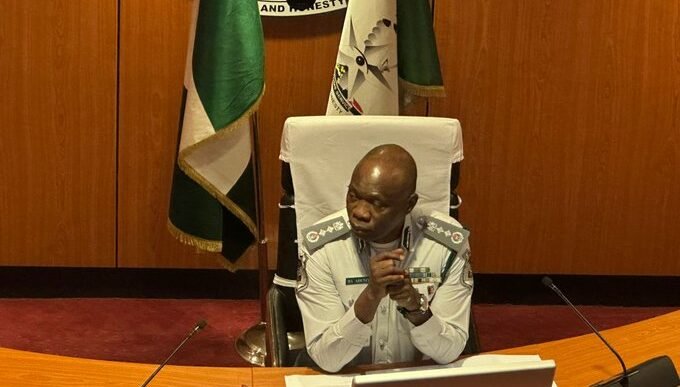Abuja, Nigeria — October 21, 2025
Nigeria’s aviation industry is bracing for significant disruptions beginning today, as workers of the Nigerian Meteorological Agency (NiMet) have commenced an indefinite strike to protest poor remuneration, welfare neglect, and the non-implementation of their approved Conditions of Service (CoS).
The strike, declared by the Amalgamated Union of Public Corporations, Civil Service Technical and Recreational Services Employees (AUPCTRE), is expected to paralyze critical weather monitoring and forecasting services essential to flight operations across the country.
Flights Across Nigeria May Be Affected
NiMet plays a crucial role in aviation safety by providing weather forecasts, climate data, and advisory services to airlines and air traffic control centers. With the strike taking effect, airports nationwide — including the Nnamdi Azikiwe International Airport (Abuja), Murtala Muhammed Airport (Lagos), Port Harcourt International Airport, and Aminu Kano International Airport — may experience delays and possible cancellations due to the absence of up-to-date meteorological reports required for flight clearance.
Aviation experts warn that the strike could trigger a ripple effect, grounding flights, disrupting schedules, and affecting both domestic and international operations.
A senior official at the Federal Airports Authority of Nigeria (FAAN), who spoke on condition of anonymity, said the situation is “potentially dangerous” if not resolved swiftly.
“Pilots cannot operate safely without certified weather updates from NiMet. This is a serious matter that could force airlines to suspend flights until the strike is called off,” the official said.
Why NiMet Workers Are on Strike
In a statement released late Monday, AUPCTRE’s General Secretary, Comrade Sikiru Waheed, said the strike action was necessitated by the Federal Government’s continued delay in implementing NiMet’s Conditions of Service (CoS), which were approved as far back as 2022, as well as the agency’s failure to address salary disparities and poor welfare.
“Despite repeated appeals, NiMet management and the supervising ministry have failed to implement the reviewed Conditions of Service. Workers can no longer endure the hardship of poor remuneration and neglect,” Waheed said.
He emphasized that the union had issued several notices to both NiMet management and the Federal Ministry of Aviation and Aerospace Development, warning of imminent industrial action if their demands were not met.
“We gave the government ample time to act, but nothing was done. This strike is indefinite and will continue until our demands are fully implemented,” he added.
Workers Lament Poor Pay and Working Conditions
NiMet staff members across multiple states have described their conditions as “disheartening,” citing years of stagnated wages despite increasing workloads and technical demands.
A NiMet worker at the Maiduguri Regional Office, who requested anonymity, said employees are frustrated by the government’s lack of seriousness in addressing their welfare.
“We have been patient for too long. Our Conditions of Service were approved years ago, yet nothing has changed. We provide essential weather services that support aviation safety, agriculture, and disaster management, but we are treated as though our work doesn’t matter,” the staff member lamented.
Another worker in Lagos said many employees struggle to make ends meet despite working in a highly technical and safety-critical field.
“The cost of living has skyrocketed, but our salaries have remained the same for years. We are simply asking for what was officially approved. If the government can’t value our contribution, we have no choice but to withdraw our services,” he said.
Government and Management Response
Reacting to the strike threat, NiMet’s Director of Human Resources, Mrs. Rakiya Ahmed, appealed to the workers to exercise patience as the management continues to engage with the Office of the Head of Civil Service of the Federation (OHCSF) to finalize the implementation process.
“Management is not unaware of the challenges faced by our workers. Discussions are ongoing with relevant government agencies to ensure that the approved Conditions of Service are implemented soon,” Ahmed stated.
However, AUPCTRE insists that these promises have been repeated for years without tangible progress, describing them as “empty assurances.”
Efforts to reach the Minister of Aviation and Aerospace Development, Festus Keyamo (SAN), for comment were unsuccessful at press time. However, ministry insiders said a meeting between the minister, NiMet management, and union representatives has been scheduled for later this week in a bid to avert a full-scale shutdown of aviation services.
Potential Impact on the Aviation Industry
The strike by NiMet workers poses serious risks to flight safety, weather forecasting, and disaster preparedness. Meteorological data from NiMet are crucial not only for aviation but also for agriculture, maritime navigation, and environmental monitoring.
If the industrial action continues, airlines may be forced to suspend operations pending clearance from regulatory authorities such as the Nigerian Civil Aviation Authority (NCAA).
Aviation analyst Captain Dapo Oduwole warned that prolonged disruption could lead to significant economic losses.
“Without real-time weather data, flights cannot safely take off or land. This strike could ground hundreds of flights and cost the aviation sector millions of naira daily. The government must act fast to prevent a total shutdown,” he said.
Safety Concerns and Contingency Plans
Sources at the NCAA said emergency measures were being considered to ensure minimal disruption to flight operations. However, aviation insiders noted that no agency can fully substitute NiMet’s services due to the specialized nature of meteorological data collection and interpretation.
A senior NCAA official told reporters that the regulator was in “constant communication” with NiMet and airline operators to manage the situation.
“We’re monitoring the situation closely. Passenger safety remains our top priority. Airlines have been advised to adhere strictly to weather safety regulations and not to take unnecessary risks,” the official said.
Calls for Urgent Intervention
Several aviation unions, including the Air Transport Services Senior Staff Association of Nigeria (ATSSSAN) and the National Union of Air Transport Employees (NUATE), have expressed solidarity with NiMet workers, calling on the Federal Government to resolve the matter immediately.
“NiMet is the backbone of aviation safety. The strike is justified. The government must act fast to restore order and prevent chaos at airports,” said Comrade Adetokunbo Abioye, a NUATE executive.
Civil society groups and labor advocates have also criticized the government for failing to prioritize workers’ welfare in critical sectors such as aviation.
Looking Ahead
As the strike begins, uncertainty looms over Nigeria’s aviation landscape. Passengers are being advised to check with their airlines for updates on flight schedules, as disruptions are likely to escalate if the impasse continues.
NiMet workers, meanwhile, have vowed not to return to work until their full demands are met, signaling a potentially prolonged standoff that could cripple flight operations nationwide.
With mounting pressure from unions, airlines, and the traveling public, the Federal Government faces a race against time to avert what could become one of the most disruptive strikes in Nigeria’s aviation sector in recent years.














